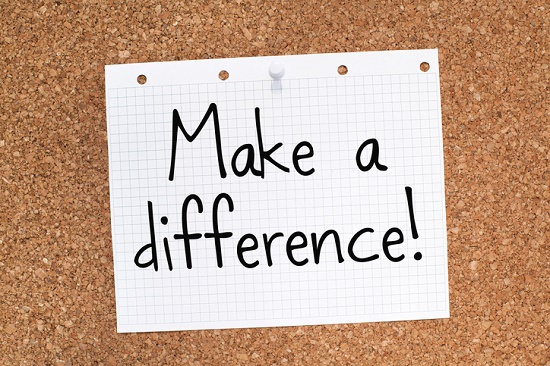
If you presently wear hearing aids, you’ve already beat the odds.
In the US, roughly 48 million people have hearing loss, of which 28.8 million could benefit from using hearing aids.
However, of those age 70 and older, only 30 percent of those who could benefit from hearing aids actually use them. For those age 20 to 69, it’s merely 16 percent.
That’s literally millions of Americans that are losing out on the advantages of improved hearing—benefits you understand first-hand if you use hearing aids yourself or know someone who does.
So what can you do to promote awareness about the benefits of hearing aids and the enhancements to the quality of life they produce?
Here are ten ways to become an advocate for hearing health.
1. Discuss hearing loss on social media
Social media is a simple and effective way to spread the message about the positive effects of healthier hearing. Let people know how hearing aids work, and how they’ve personally improved your life or the life of someone you know.
While people are generally skeptical of advertising, they’ll almost always be receptive to personal stories.
2. Volunteer to help those in need
Participate in a local event like the Hearing Loss Association of America’s Walk4Hearing event, or plan your own to raise awareness or funds for hearing loss.
Contact your local hearing loss chapter and discover ways you can help out in the community. Visit the Hearing Loss Association of America to find a local chapter.
3. Donate your old hearing aids
If you’re prepared to upgrade your hearing aids to a newer model, consider donating your old hearing aids to a local organization or hearing clinic.
Your donated hearing aids can be reconditioned and provided to those who couldn’t otherwise pay for them.
4. Contribute to hearing health organizations
Consider donating to an organization that supports the deaf and hard-of-hearing community, such as the Hearing Health Foundation, Hearing Charities of America, or a local organization.
These institutions use the contributions to fund research, to provide education and support, and to offer financial assistance to those who can’t pay for hearing aids or cochlear implants.
5. Start a petition
Most states do not require health insurance plans to cover the expense of hearing aids. Start a petition to show to your elected representatives, asking them to recognize hearing health as a integral element of total health.
6. Help someone overcome hearing loss
Many people accept as true the misconception that hearing aids don’t work, or they may even be denying they have hearing loss in the first place.
Help people to accept their hearing loss and understand that the technological advancements in hearing aids can help them recover their hearing. Help guide them through the steps of choosing a provider, getting their hearing tested, and adjusting to their hearing aids.
7. Advocate for the community
Hearing loop systems send sound straight from the source to the individual’s hearing aids. These can be found in movie theaters, churches, universities, and auditoriums.
Advocate for the addition of hearing loop systems in the most widely used community venues.
8. Use hearing protection
One of the best ways to advocate for hearing health is by being a hearing health role model. That means safeguarding your hearing at loud settings, like at concerts or sporting events, with customized hearing protection.
9. Have your hearing evaluated
If you don’t already use hearing aids, prove your dedication to hearing health by getting your hearing tested. Share the process on social media and suggests that other people do the same.
10. Wear your hearing aids with pride
Finally, you can do your part to end the stigma of hearing loss by wearing your hearing aids with pride. Hearing loss is prevalent, just like vision loss, and wearing hearing aids should be as normal and acceptable as wearing a pair of prescription glasses.

